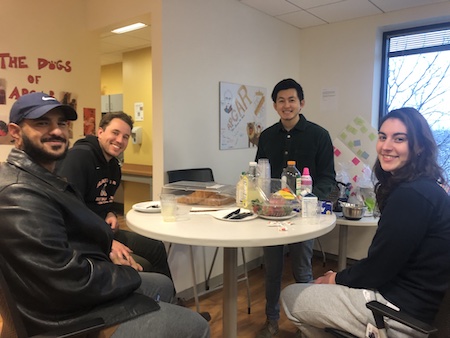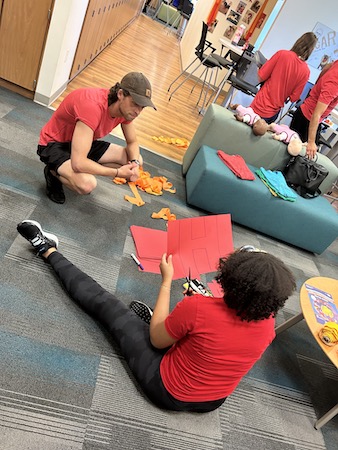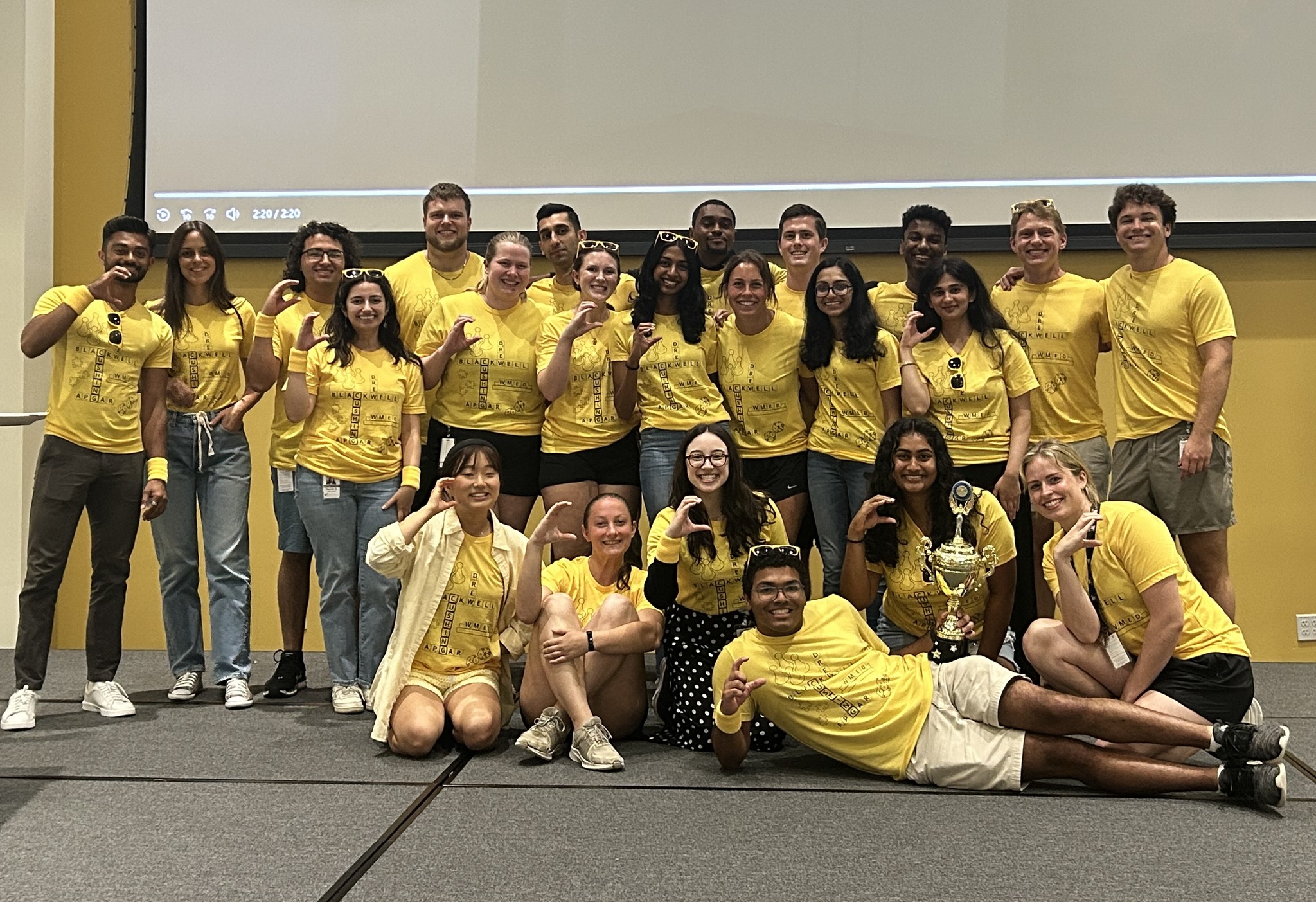
Medical education at WMed is built on a strong foundation of close working relationships between students and faculty. With a target class size of 86 students and almost 600 faculty members, each student receives a great deal of personal attention. WMed has established learning communities to promote connections among students and advisors who provide mentoring, advising, and career counseling. Students learn from each other through these associations and collaborations -- similar to how physicians learn from their colleagues throughout their careers.
Students are assigned to a learning community in their first year, and remain in that community throughout their four years. Students in the Master of Biomedical Sciences (MBS) program are assigned to a learning community, and remain in that community throughout their MBS and MD program (if they successfully matriculate to the MD program).
Academic Advisors
Your Academic Advisor at WMed serves as your first point of contact for any and all questions and concerns. They will help you navigate your academic journey by connecting you with resources, monitoring your academic progress, and getting to know you as an individual. Additionally, Academic Advisors serve as student advocates and will help find solutions to any concerns you may have. If you aren’t sure what to do, where to go, or who to talk to about a problem, stop in and chat with your Academic Advisor. While you can meet with your Academic Advisor any time, you will have mandatory check-ins twice per year.
Academic Advisors are assigned by Learning Community:
- Apgar: Sarah Hagen-Keirns, MA
- Blackwell: Joshua Conley, MA
- Cushing: Joshua Conley, MA
- Drew: Sarah Hagen-Keirns, MA
Career Connections
Near the middle of the second year, each student is matched with an individual mentor, a clinical faculty member, alumni, or other practicing physician generally in the specialty the student is considering pursuing. Individual mentors provide personal mentoring, opportunities for student reflection and feedback, personal support, and academic mentoring.
Student Learning Community Representatives
Learning communities also provide opportunities for student wellness, social activities, and camaraderie. Each year, the learning communities compete in the Learning Community Olympics, an Olympic-style competition with multiple challenges such as trivia, a scavenger hunt, and Microwave Iron Chef. In addition to bragging rights, the winning learning community receives the College Cup trophy to keep in their common area for the entire year.
Throughout the year, Learning Community Representatives plan events, provide care packages, and offer support to other students in their Learning Community to help them navigate their time in medical school. Current students can see the list of current LC Representatives on the student portal (Login Required).
Each Learning Community is named for a physician who had a lasting impact on the field of medicine:
Learning Community A: Virginia Apgar, MD: "Do what's right, and do it now."

Dr. Virginia Apgar is best known as the developer of the Apgar score used to assess the condition of an infant upon delivery. The Apgar score has become recognized worldwide as a standardized method of evaluating an infant's transition to life outside the womb. Dr. Apgar was also the first woman to be named a full professor at Columbia University College of Physicians and Surgeons, and served as the director of the Division of Congenital Defects at the National Foundation for Infantile Paralysis, the predecessor to the March of Dimes.
Learning Community B: Elizabeth Blackwell, MD: "It's not easy to be a pioneer -- but oh, it is fascinating! I would not trade one moment, even the worst moment, for all the riches in the world."
Dr. Elizabeth Blackwell is known as the first woman to receive an MD degree in the United States. Dr. Blackwell spent her career pursuing the advancement of women in the medical field. In 1857, she founded the New York Infirmary for Indigent Women and Children, an institution with trustees and attending physicians who were women, which is still open to this day. Dr. Blackwell was also the first woman entered in Britain's General Medical Councils' register.
Learning Community C: Harvey Cushing, MD: "A physician is obligated to consider more than a diseased organ, more than even the whole man -- he must view the man in this world."
Dr. Harvey Cushing is best known as the "father of modern neurosurgery" and his description of a case of systemic disease caused by a dysfunction of the pituitary gland. What he called the polyglanduar syndrome is known as Cushing's Disease. Dr. Cushing was also a pioneer of techniques and surgical instruments for neurosurgery, including the use of X-rays in the diagnosis of brain tumors, Cushing forceps, the Bovie electrocautery device, and the first mechanism for continuously recording a patient's pulse and respiration.
Learning Community D: Charles Drew, MD: "Excellence of performance will transcend artificial barriers created by man."
Dr. Charles Drew was the director of the "Blood for Britain" program during World War II, and was responsible for collecting blood from nearly 15,000 Americans to support the war effort. As a supporter of quality insurance, Dr. Drew established uniform procedures for the collection, testing, and handling of blood products that created the modern blood bank. In 1940, Dr. Drew was the first African American to earn a doctorate in Medical Science from Columbia University. He pioneered the use of mobile blood donation stations, or bloodmobiles, that are still in use today.


